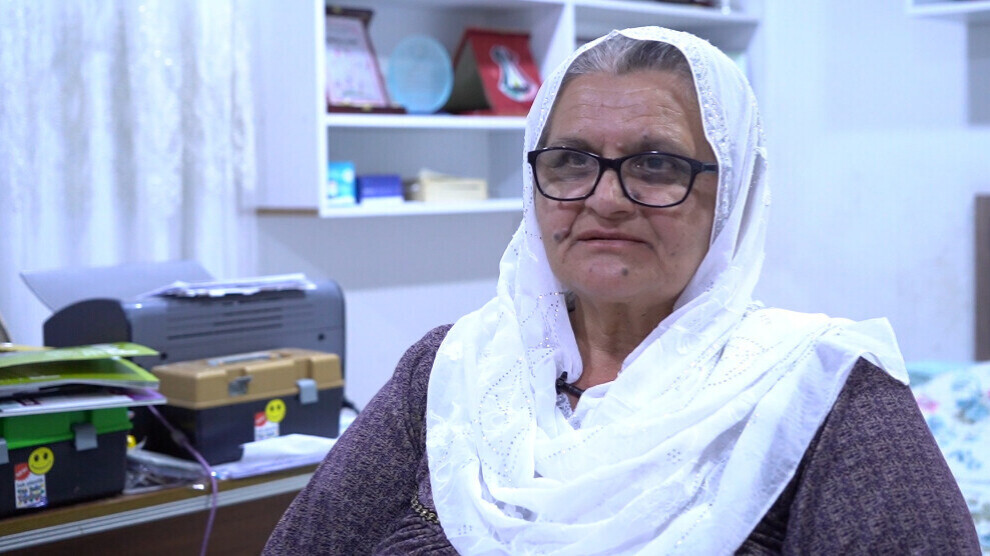Halabja Massacre: I took to the roads with my 21-day-old baby
Emire Feteh Kikwas took to the roads with her 21-day-old baby when the chemical attack took place in Halabja. She told us before and after the attack.

MIHRÎBAN SELAM KAKAYÎ
Halabja- 34 years have passed since the Halabja Massacre took place. Every year on March 16, the tragedies caused by the chemical attack are felt and experienced again. Emire Fetah Kikwas is one of the people who experienced these tragedies. Emire, who has four daughters, told us her youngest daughter was 21-day-old during the attack.
“Everyone took shelter in the basements”
Noting that she remembers the chemical attack on Halabja on the morning of March 16 as if it happened today, Emire Fetah Kikwas said, “When the attack began, everyone took shelters in the basements. Some mothers had to go out of the basements to prepare food for their children. There were many jets flying over Halabja. When someone went out of the basements, they began to drop bombs.”
“The tractor was full of dead bodies”
Pointing out that the aim of the jets was to kill everybody in Halabja, Emire Fetah Kikwas continued to talk as follows:
“We didn’t know where to go. I was told we should go to Hewar village near the Iranian border. And we headed for the village of Serken. There was a tractor carrying dead bodies in front of us. I asked them where they were taking the dead bodies and they told me they would bury the dead bodies in a mass grave to prevent the effect of the chemical weapons.”
“I helped a woman giving birth on the way”
Recalling that they headed for the Iranian border with her 21-day-old daughter, Emire Fetah Kikwas said, “I was carrying my 21-day-old baby and Iranian guards blocked the road and asked me ‘Is this baby yours?’. I told them that she was my baby and needed an injection because she vomited. But they told me they didn’t care if she dies or not. We continued to walk to Daretu and then to Şêxana. After a long journey, we settled in Orduga. I saw a woman giving birth on the way. No one helped her so I helped her.”
“People were crying in despair”
Pointing out that the effects of the gases used in the chemical attack lasted for many years, Emire Fetah Kikwas said, “The gases had negative effects on us. The people were throwing their children out of their arms or crying in despair because the gases affected the human brain. We were forcibly displaced from our house. We returned to Halabja in 1991. Therefore, services should be always provided in Halabja.”
